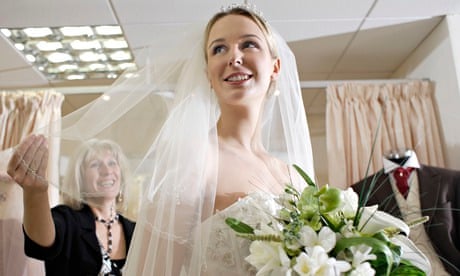Whether it's a wedding or other special occasion, everyone loves to celebrate a big event, but planning these things can be fraught and often the cause of sleepless nights and worry about how to ensure the event is a big success and goes off without a hitch.
One solution is to let someone else to do the planning for them, which is why event planners and co-ordinators are finding their services increasingly in demand. For those with good communication skills, an eye for style, and a flair for organisation, event planning can be a rewarding business that lends itself to being run from home.
Jennifer Phipp left her role as a former weddings and events manager at a luxury resort in Portreath, Cornwall, to set up her own home-based business Jenny Wren Weddings & Events in November. As well as excellent organisational skills, she says one of the most important qualities for business success is personability.
"As a wedding and event planner, clients buy into you as a person as well as the service you are offering and place their trust in you to organise what can be a highly important personal event," she says. "You need the ability to make your clients feel at ease with you, and this stems from having a very personable character, which is essential in this line of work."
An initial consultation meeting with her client provides Phipp with some insight into their character and the sort of look and feel they want for their event. This inspires her to come up with the creative ideas for their special day. However, she adds that one of the few drawbacks of running a business like this from home, is having to generate that creativity in isolation.
She says: "In an office environment, you are surrounded by colleagues who are all working in the same field and whom you can ask for an opinion on a colour scheme or for their view on a particular supplier, and so on. Working from home on your own means there is likely to be no one else to ask for ask for a second opinion, so often you have to trust your own instinct."
Event planning can be a seasonal business; demand for Christmas parties creates a festive peak season, while enquiries about wedding planning services frequently follow prime engagement periods of Christmas, New Year's Eve and Valentine's Day.
Phipp adds: "If you are open to the prospect of organising a broader range of events then you are more likely to stay busy all year round. So that might include providing planning services for non-seasonal events such as conferences, corporate dinners, staff training days and celebration parties."
Anyone who is thinking about turning their talents to becoming a freelance wedding planner needs to be aware of how time consuming the work can be, says Caroline Smith, who set up her business, London-based Do Events.
She says: "It's said to take an average of 250 hours to plan a wedding. Once I've met with the bride, groom and their immediate families, I put together a proposal and a fee based on their requirements and how I can help them. Also, I find that most brides and their families want help on the day of their wedding, someone to look after the suppliers, the guests and be on hand to oversee everything runs smoothly."
Smith finds her home-based business quite flexible to run and she is able to fit it around her son and family life in general. Having a husband who is a drummer in a successful band can come in useful when she needs to find a good band that she can trust to put on a show at a wedding or party.
She adds: "Finding new business is a constant challenge as the events industry is a very crowded market to be in. However, I do use a lot of social media; Facebook and Twitter, blogs and listings to win business, and I also take part in cross promotions with other small businesses in the events and wedding industry."
Marketing is an essential skill for home-based event planners. Word-of-mouth recommendations are especially important, as is keeping up with the latest marketing tools and techniques for reaching new customers.
Having set up her Leeds-based events business We Love This from home in 2012, Rebecca Marriott is constantly looking for new ways to make her business stand out in a highly competitive industry.
She says: "We have only been going for 16 months so we are constantly trying to keep ahead of the game. It is crucial to keep up to date with new ways of marketing yourself, and offering clients interesting new ways of working with you.
"The biggest revelation this year for me has been Pinterest. It puts me in direct contact with people searching for wedding styling ideas or party planning, and then once I'm in touch with the prospective new client, it couldn't be easier to see the kind of thing they want.
"I just take a look at the boards they've set up to visually plan how they'd like the event to be, and show them the kinds of things we've done before, even more specifically, the kinds of props we already have, and can offer very cost-effectively."
This piece was originally published in February 2014
Sign up to become a member of the Guardian Small Business Network here for more advice, insight and best practice direct to your inbox



Comments (…)
Sign in or create your Guardian account to join the discussion